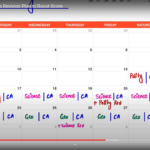





MAIN
In the UPSC Prelims exam pattern, there are two papers – GS paper 1 and CSAT. Each paper consists of objective-type questions. The negative marking pattern for both papers is as follows:
- For each incorrect answer, there is a penalty of 1/3rd of the assigned marks to that question.
- If a candidate provides multiple answers to a single question, even if one of the given answers is correct, it will still be considered an incorrect response. In such cases, the same penalty as mentioned above will apply to that particular question.
- Unattempted questions do not have any penalty.
UMANG

NEW
he final stage, the UPSC Interview or Personality Test, is where aspirants’ personalities are evaluated. A panel of experts assesses qualities such as mental alertness, clear and logical exposition, critical powers of assimilation, balance of judgement, ability for social cohesion and leadership, and intellectual and moral integrity. The number of candidates selected for the Interview will be around twice the number of vacancies to be filled. This stage aims to determine the candidate’s suitability for the dynamic and diverse responsibilities of civil services. The interview process typically follows a structured pattern:
- Duration: The interview usually lasts for about 20-30 minutes.
- Panel: The interview is conducted by a panel of experts, including experienced bureaucrats, academicians, and subject-matter specialists.
- Venue: The interviews are usually conducted at the UPSC office in New Delhi.
